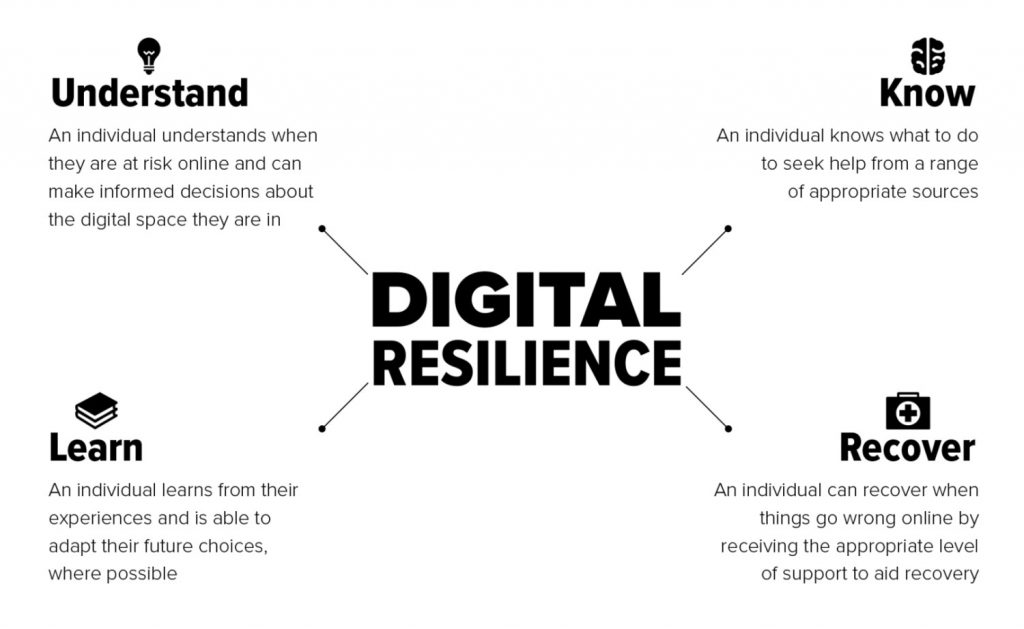DL 276
Digital Resilience
Published: January 28, 2021 • 📧 Newsletter
Welcome to Digitally Literate, issue #276. Your go-to source for insightful content on education, technology, and the digital landscape.
🔖 Key Takeaways
- GameStop Phenomenon: Reddit-driven stock surge reveals new forms of collective digital action and generational inequality awareness
- Digital Resilience: Framework emphasizing collective action and enabling environments rather than individual responsibility
- Reading Science Debates: Ongoing tensions between phonics and whole language approaches highlight complexity in educational research
- Formative Assessment: Eight practical strategies for checking student understanding in real-time
This week I posted the following:
- Where I Begin - Learning Event #2 - As we continue this walk in your world, please begin at the beginning. Home.
- Ten Rules for Innovative Dissemination of Research - How do you hit reset and go back to zero? How do you ignore sunk costs and pivot to something new?
If you haven't already, please subscribe if you would like this newsletter to show up in your inbox. Feel free to reach out and say hey at hello@digitallyliterate.net.
📺 Watch
Nia Dennis - 2021 Floor Exercise
UCLA gymnast Nia Dennis clinches the win for the Bruins with a 9.95 on floor exercise against Arizona State on Jan. 23, 2021.
The latest entry in the surprisingly robust YouTube subgenre of viral college gymnastics routines dropped over the weekend.
The latest floor routine to bubble up into the mainstream isn't even Dennis’s first. The Ohio native’s Homecoming-themed floor exercise from a meet last season.
Please also check out other performances that have broken through. Louisiana State’s Lloimincia Hall in 2014, UCLA’s Sophina DeJesus in 2016 or Katelyn Ohashi two years ago.
📖 Read
What happened with GameStop?

Last week, an epic short squeeze drove GameStop stock up to $40 a share, a roughly 1,500 percent increase from its low point nine months ago.
I have a feeling this is just the beginning of the story. This is also an important narrative in the history of the Internet. Vastly different than GamerGate and the the Arab Spring, these stories all hold portends for the future.
I will try and do this story justice for now, and will reference this in the future. For now, I'm drawing my analysis from this deep primer by Alexis Goldstein.
A group of young traders has been propelled, and empowered, by technology, to make some money, make a mockery of the markets, and perhaps do it for the lulz.
They're using tools like Robinhood, a trading app aimed specifically toward market newbies, entices young users with no transaction fees, immediate access to instant deposits and a fun, user-friendly interface.
They turn to online communities to talk stocks and strategies with one another, on platforms like Discord and Reddit, most notably on the forum r/WallStreetBets. The foul-mouthed, meme-heavy group debates stocks and discusses trades in a way that feels native to many high school and college students.
Though most of the traders are too young to remember many details of the 2008 financial crisis, they witnessed the impact of it on their families. They watch as people struggle to make ends meet while they lose their jobs and homes. They are hyper aware of income inequality and the disparities in access to wealth in America.
What the Arab Spring Can Teach Us About GameStop
Ten years ago, democracy protesters used social media to organize against an oppressor. But ultimately, the powerful came out ahead.
It is difficult not to get swept up by the belief that a band of activists using social-network tools could topple an oppressive regime.
Rather than bringing democratic institutions to countries, like Egypt, long denied them, the internet often works in reverse, destabilizing democracy around the world and expanding inequality. Yet each time an online group tries to stick it to the Man, we allow ourselves to dream again.
Is there really a ‘science of reading’ that tells us exactly how to teach kids to read?
A post by David Reinking, Victoria Risko, and George Hruby over the war that persists over teaching phonics or whole language. The piece examines this broad issue and discusses whether there really is a “science of reading” that has finally settled how reading should be taught.
This video from Hruby gives a "direct-and-explicit" definition of what the Science of Reading is, and why so many literacy and reading researchers are up in arms about it.
Children Need to Be Back in School Tomorrow
David Brooks with an editorial about the need to get kids back to school.
Review this thread by Aaron Tang. Yes, we want students to be back in school. But, we need to make sure we're safe, smart, and following the "science."
This post by Bryan Alexander discusses the mistakes that have been made in higher ed.
A framework for digital resilience: supporting children through an enabling environment
Cliff Manning indicates that a system that relies on users having high resilience is toxic.
Digital resilience is a dynamic personality asset that grows from digital activation i.e. through engaging with appropriate opportunities and challenges online, rather than through avoidance and safety behaviors.

Resilience and recovery are not the responsibility of an individual, they are the result of collective action.
🛠️ Make/Do
8 Quick Checks for Understanding
Jay McTighe shares some opportunities for formative assessment to guide learners and anticipate instruction.
- Signal It: hand signal to indicate understanding
- Choose It: true/false, agree/disagree
- Picture It: visual or graphical representations
- Troubleshoot It: identify & correct the flaw
- Summarize It: synthesize and condense information
- Apply It: use information in a new context
- Teach It: share with someone else
- Analogize It: develop a metaphor to explain
🤔 Consider
What is your footnote to the world?
— Yolanda Sealey-Ruiz
Not appropriate, but this made me and the kids laugh this week. Peppa Pig plays Minecraft.
🔗 Navigation
Previous: DL 275 • Next: DL 277 • Archive: 📧 Newsletter
Connected concepts:
- Digital Resilience Frameworks
- GameStop and Reddit Communities
- Reading Science and Literacy Debates
- Formative Assessment Strategies
Part of the 📧 Newsletter archive documenting digital literacy and technology.